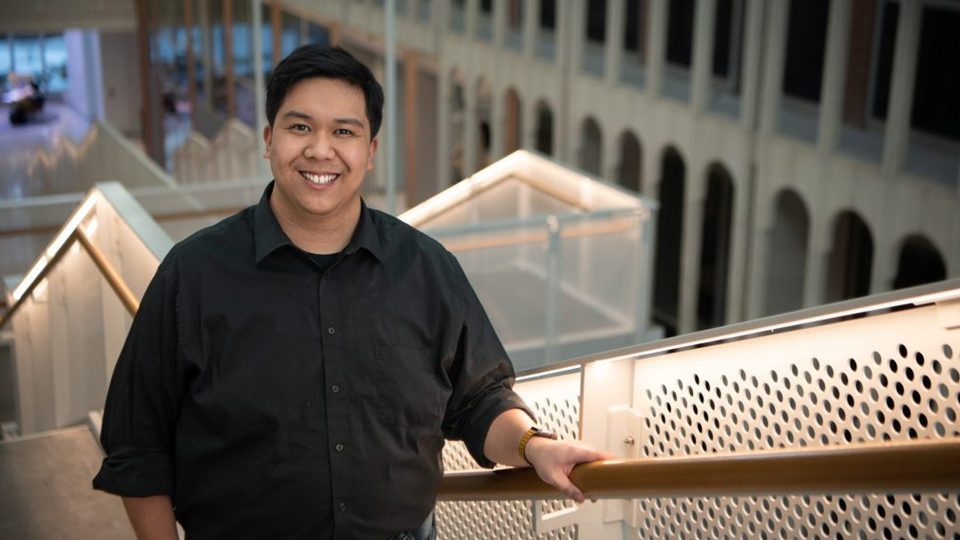Jaren Yambing ’22 Awarded Prestigious Churchill Scholarship
The scholarship, which was created at the request of Sir Winston Churchill, is widely considered the most prestigious post-undergraduate STEM research award.

Senior geology major Jahmaine Renzo (Jaren) Yambing ’22 from Rosemount, Minnesota, is the recipient of a Churchill Scholarship, a prestigious award which funds a year of study at the University of Cambridge in select science, mathematics, and engineering programs.
The scholarship, which was created at the request of Sir Winston Churchill, is widely considered the most prestigious post-undergraduate STEM research award. Yambing is the seventh Carleton student to win the award in its 58-year history.
“I feel really honored and privileged to have this opportunity to study at Cambridge,” said Yambing, who was also a 2021 recipient of the Goldwater Scholarship for engineering, math, and natural sciences.
During his time at Carleton, Yambing has worked on various research projects covering subjects ranging from coral skeletons to corn. His interest in scientific research came about after his experience at a first-year research externship, and soon after, he got into geology.
“As I was exploring different sciences, I took an introductory geology class and fell in love with learning about the story of my home state [of Minnesota],” he said.
Yambing’s research at Cambridge will look different from some of his past work.
“I will be working in Dr. Edward Tipper’s research group at the University of Cambridge’s Department of Earth Sciences,” he said. “Our research focuses on slag, a waste material from steel production, and its potential for carbon capture and storage.”
Yambing said he is “really excited about this project because it synthesizes carbon sequestration research and paleoclimatology, using our prior knowledge of Earth’s geochemical cycles to help address our current issues with global climate change.”
Yambing credits his Carleton education as part of the impetus for his interest in research, and for preparing him to become a Churchill scholar.
“Carleton’s flexible liberal arts curriculum really prepared me for this scholarship,” he said. “If not for Carleton’s emphasis on curricular exploration, I probably wouldn’t have discovered the geology department or scientific research.”
He also noted that classes outside the geology department have helped him grow as a writer and a storyteller, which are important skills for a geologist.
“Earth Science is, at its heart, an exercise in storytelling — telling the story of our planet and all the things on it,” he said.
After his year at Cambridge, Yambing plans to return to the United States to pursue a PhD in Earth Sciences. After completing his graduate studies, he plans to continue to research and teach as a college professor, a role in which he hopes to “promote diversity in the sciences by fostering close mentoring relationships with other first-generation, queer, and minority students of color.”
Yambing added: “I want to thank Marynel Ryan Van Zee in the Fellowships Office, Nathalie Goodkin at the American Museum of Natural History, Wei-Hsin Fu in the GIS Lab, and all of the geology professors, but especially Dan Maxbauer, for their support and getting me across the finish line.”